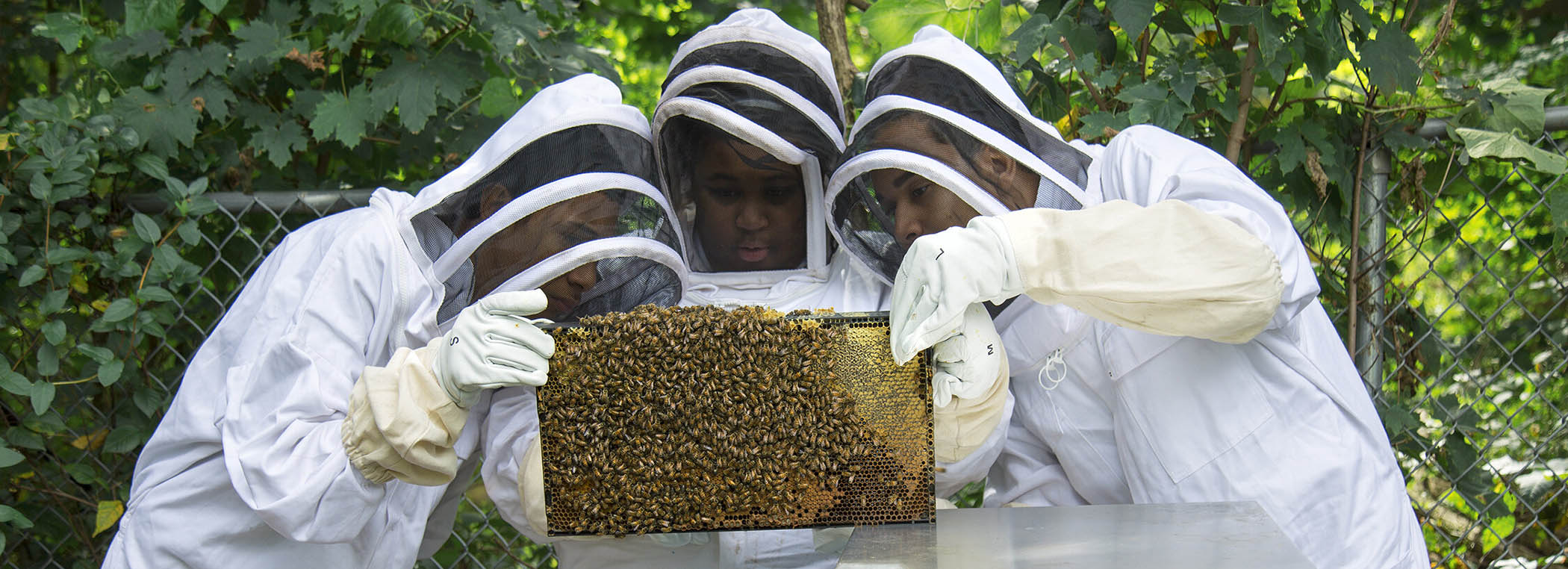A challenge often seen across grassroots community impact work is building capacity[1] within community organizations. As the clean energy transition grows, an immediate priority is ensuring that small community organizations, especially those serving low-income, coal-reliant, and BIPOC communities, as well as communities that have been affected by environmental challenges, can increase the capacity needed to continue serving their communities.
Over the past year, Sol Systems’ impact team engaged with over 150 community impact organizations across the United States to introduce ourselves and learn about their work. We shared our Infrastructure + Impact™ mission with the organizations, building the trust that is key to working with low-income and historically marginalized communities.
The organizations we met varied in their size and scope - from workforce development, environmental conservation and remediation, energy efficiency and weatherization, to clean energy generation and resiliency hub development. Each of the organizations is doing its part to embed equity and inclusion in its work so that no individual or community is left behind in the transition to a clean energy economy. During our conversations, it became obvious that these organizations share a common challenge: raising the funding needed to grow their programs and widen the scope of their impact.
Case Study: Huneebee Project
Huneebee Project (Huneebee) is one organization meeting the capacity challenge head-on. Headquartered in New Haven, Connecticut, Huneebee is a nonprofit social enterprise that brings beehives to community gardens and equitable employment to local youth. Its founder and Executive Director, Sarah Taylor, is a licensed clinical social worker and beekeeper with a history of serving youth in New Haven. Drawing from her experience working with youth who would one day participate in her organization’s programs, Sarah developed the idea that youth development and local environmental conservation are goals that complement each other. Founded on this belief, Huneebee teaches transferable job skills to young individuals to prepare them for work in other environments.
The training program also includes “wraparound” support for trainees such as resume building workshops and other activities designed to help them succeed in the workplace. Primarily, this program and the team at Huneebee provide stability and structure for young people that often miss it in their everyday lives. At the end of the training program, the trainees are invited to apply for jobs with Huneebee as garden site managers, operations assistants, bee apprentices, and junior bee instructors.
In the four years since inception, 25 trainees have graduated from the Beekeepers in Residence program, Huneebee’s premier job skills training program, which has one cohort per year. When I asked Sarah why the program was limited to only one cohort of about six trainees per year, the response could be summarized into one word – capacity. Huneebee’s supervisory staff and instructors are all volunteers, and all its funding is spent on the bees, the hives, stipends for the youth trainees, and decent wages for the youth employees. This is the first year that Sarah will not need a second job to support herself while she focuses on developing the organization’s programming and raising funds to support its expansion. Like any other young organization, Huneebee has challenges to meet before it can scale its impact in the community. These needs range from hiring a full-time beekeeper to responsibly care for its hives, maximize honey production, host more hives, increase the bee-keeping workshops, and move into a permanent space. Most importantly, Huneebee knows that the best way to deepen their impact is to increase their cohort size. Huneebee recently secured two multi-year grants and completed a successful fundraiser which will allow them to increase the number of hours they can offer their youth, run up to three cohorts next year, and deepen its impact. Recently, they have finally hired a full-time beekeeper!
Sarah Taylor is justifiably proud of the organization she founded, especially the youth who have come through its doors to date. For her, there is a sense of responsibility to support workforce pathways for youth in the community. Non-profit community impact organizations like Huneebee Project are important in their communities. Often these groups provide needed social services such as education and job skills training, which many of the residents depend on, that help enhance the welfare of the community. But the need for these services is usually much greater than the non-profits’ capacity to provide them.
Building capacity does not happen instantly, but its benefits to non-profits and community organizations such as Huneebee Project cannot be overstated.
Other Organizations
For more information about community organizations embracing the challenges of capacity-building to deepen impact in their communities and how you can help, check out these other organizations in the Baltimore-Washington metropolitan area. These are a few of the organizations that we engaged with in the past year:
Computer CORE is a nonprofit organization whose mission is to prepare underserved adults in Virginia to achieve their career goals by teaching foundational digital and professional skills. Computer CORE has a long history of helping Virginians from over 100 countries to “build confidence in the computer skills needed to participate in today’s economy.”
South Baltimore Community Land Trust (SBCLT) is a community-led non-profit organization working to build affordable housing, ensure development without displacement, and zero waste. SBCLT was founded after years of research and action by high school students and residents in South Baltimore. SBCLT believes that “people directly impacted by environmental, economic and racial injustice must be in the lead to create development that regenerates our communities and our planet.”
[1] In this article, capacity focuses on an organization’s ability to raise or obtain the funding needed to grow its programs and serve more members of the community.



